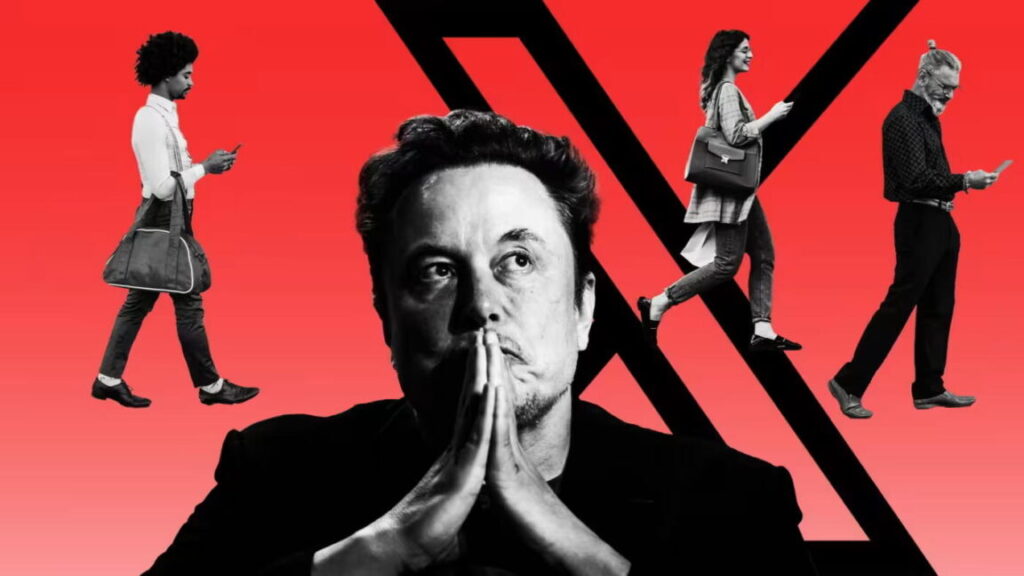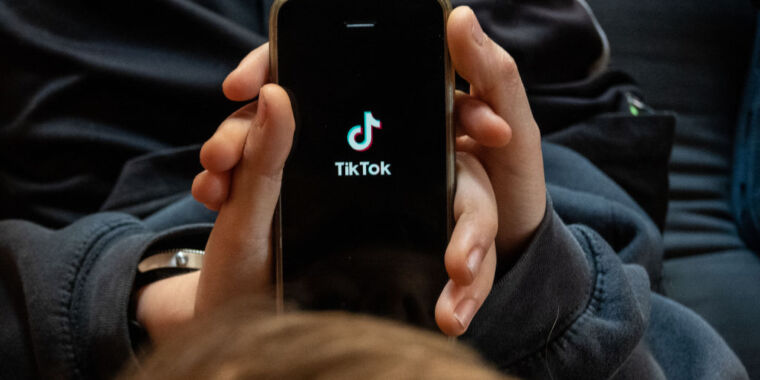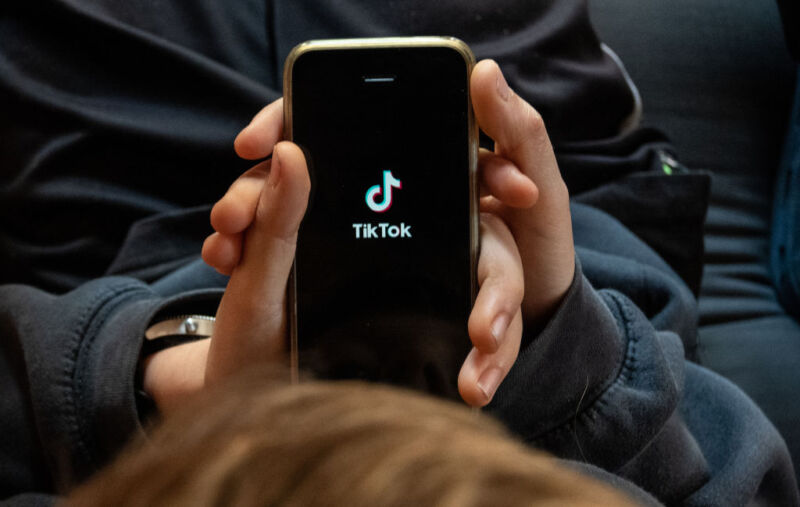Bursting AI bubble may be EU’s “secret weapon” in clash with Trump, expert says
Spotify and Accenture caught in crossfire as Trump attacks EU tech regulations.
The US threatened to restrict some of the largest service providers in the European Union as retaliation for EU tech regulations and investigations are increasingly drawing Donald Trump’s ire.
On Tuesday, the Office of the US Trade Representative (USTR) issued a warning on X, naming Spotify, Accenture, Amadeus, Mistral, Publicis, and DHL among nine firms suddenly yanked into the middle of the US-EU tech fight.
“The European Union and certain EU Member States have persisted in a continuing course of discriminatory and harassing lawsuits, taxes, fines, and directives against US service providers,” USTR’s post said.
The clash comes after Elon Musk’s X became the first tech company fined for violating the EU’s Digital Services Act, which is widely considered among the world’s strictest tech regulations. Trump was not appeased by the European Commission (EC) noting that X was not ordered to pay the maximum possible fine. Instead, the $140 million fine sparked backlash within the Trump administration, including from Vice President JD Vance, who slammed the fine as “censorship” of X and its users.
Asked for comment on the USTR’s post, an EC spokesperson told Ars that the EU intends to defend its tech regulations while implementing commitments from a Trump trade deal that the EU struck in August.
“The EU is an open and rules-based market, where companies from all over the world do business successfully and profitably,” the EC’s spokesperson said. “As we have made clear many times, our rules apply equally and fairly to all companies operating in the EU,” ensuring “a safe, fair and level playing field in the EU, in line with the expectations of our citizens. We will continue to enforce our rules fairly, and without discrimination.”
Trump on shaky ground due to “AI bubble”
On X, the USTR account suggested that the EU was overlooking that US companies “provide substantial free services to EU citizens and reliable enterprise services to EU companies,” while supporting “millions of jobs and more than $100 billion in direct investment in Europe.”
To stop what Trump views as “overseas extortion” of American tech companies, the USTR said the US was prepared to go after EU service providers, which “have been able to operate freely in the United States for decades, benefitting from access to our market and consumers on a level playing field.”
“If the EU and EU Member States insist on continuing to restrict, limit, and deter the competitiveness of US service providers through discriminatory means, the United States will have no choice but to begin using every tool at its disposal to counter these unreasonable measures,” USTR’s post said. “Should responsive measures be necessary, US law permits the assessment of fees or restrictions on foreign services, among other actions.”
The pushback comes after the Trump administration released a November national security report that questioned how long the EU could remain a “reliable” ally as overregulation of its tech industry could hobble both its economy and military strength. Claiming that the EU was only “doubling down” on such regulations, the EU “will be unrecognizable in 20 years or less,” the report predicted.
“We want Europe to remain European, to regain its civilizational self-confidence, and to abandon its failed focus on regulatory suffocation,” the report said.
However, the report acknowledged that “Europe remains strategically and culturally vital to the United States.”
“Transatlantic trade remains one of the pillars of the global economy and of American prosperity,” the report said. “European sectors from manufacturing to technology to energy remain among the world’s most robust. Europe is home to cutting-edge scientific research and world-leading cultural institutions. Not only can we not afford to write Europe off—doing so would be self-defeating for what this strategy aims to achieve.”
At least one expert in the EU has suggested that the EU can use this acknowledgement as leverage, while perhaps even using the looming threat of the supposed American “AI bubble” bursting to pressure Trump into backing off EU tech laws.
In an op-ed for The Guardian, Johnny Ryan, the director of Enforce, a unit of the Irish Council for Civil Liberties, suggested that the EU could even throw Trump’s presidency into “crisis” by taking bold steps that Trump may not see coming.
EU can take steps to burst “AI bubble”
According to Ryan, the national security report made clear that the EU must fight the US or else “perish.” However, the EU has two “strong cards” to play if it wants to win the fight, he suggested.
Right now, market analysts are fretting about an “AI bubble,” with US investment in AI far outpacing potential gains until perhaps 2030. A Harvard University business professor focused on helping businesses implement cutting-edge technology like generative AI, Andy Wu, recently explained that AI’s big problem is that “everyone can imagine how useful the technology will be, but no one has figured out yet how to make money.”
“If the market can keep the faith to persist, it buys the necessary time for the technology to mature, for the costs to come down, and for companies to figure out the business model,” Wu said. But US “companies can end up underwater if AI grows fast but less rapidly than they hope for,” he suggested.
During this moment, Ryan wrote, it’s not just AI firms with skin in the game, but potentially all of Trump’s supporters. The US is currently on “shaky economic ground” with AI investment accounting “for virtually all (92 percent) GDP growth in the first half of this year.”
“The US’s bet on AI is now so gigantic that every MAGA voter’s pension is bound to the bubble’s precarious survival,” Ryan said.
Ursula von der Leyen, the president of the European Commission, could exploit this apparent weakness first by messing with one of the biggest players in America’s AI industry, Nvidia, then by ramping up enforcement of the tech laws Trump loathes.
According to Ryan, “Dutch company ASML commands a global monopoly on the microchip-etching machines that use light to carve patterns on silicon,” and Nvidia needs those machines if it wants to remain the world’s most valuable company. Should the US GDP remain reliant on AI investment for growth, von der Leyen could use export curbs on that technology like a “lever,” Ryan said, controlling “whether and by how much the US economy expands or contracts.”
Withholding those machines “would be difficult for Europe” and “extremely painful for the Dutch economy,” Ryan noted, but “it would be far more painful for Trump.”
Another step the EU could take is even “easier,” Ryan suggested. It could go even harder on the enforcement of tech regulations based on evidence of mismanaged data surfaced in lawsuits against giants like Google and Meta. For example, it seems clear that Meta may have violated the EU’s General Data Protection Regulation (GDPR), after the Facebook owner was “unable to tell a US court that what its internal systems do with your data, or who can access it, or for what purpose.”
“This data free-for-all lets big tech companies train their AI models on masses of everyone’s data, but it is illegal in Europe, where companies are required to carefully control and account for how they use personal data,” Ryan wrote. “All Brussels has to do is crack down on Ireland, which for years has been a wild west of lax data enforcement, and the repercussions will be felt far beyond.”
Taking that step would also arguably make it harder for tech companies to secure AI investments, since firms would have to disclose that their “AI tools are barred from accessing Europe’s valuable markets,” Ryan said.
Calling the reaction to the X fine “extreme,” Ryan pushed for von der Leyen to advance on both fronts, forecasting that “the AI bubble would be unlikely to survive this double shock” and likely neither could Trump’s approval ratings. There’s also a possibility that tech firms could pressure Trump to back down if coping with any increased enforcement threatens AI progress.
Although Wu suggested that Big Tech firms like Google and Meta would likely be “insulated” from the AI bubble bursting, Google CEO Sundar Pichai doesn’t seem so sure. In November, Pichai told the BBC that if AI investments didn’t pay off quickly enough, he thinks “no company is going to be immune, including us.”
Bursting AI bubble may be EU’s “secret weapon” in clash with Trump, expert says Read More »






















